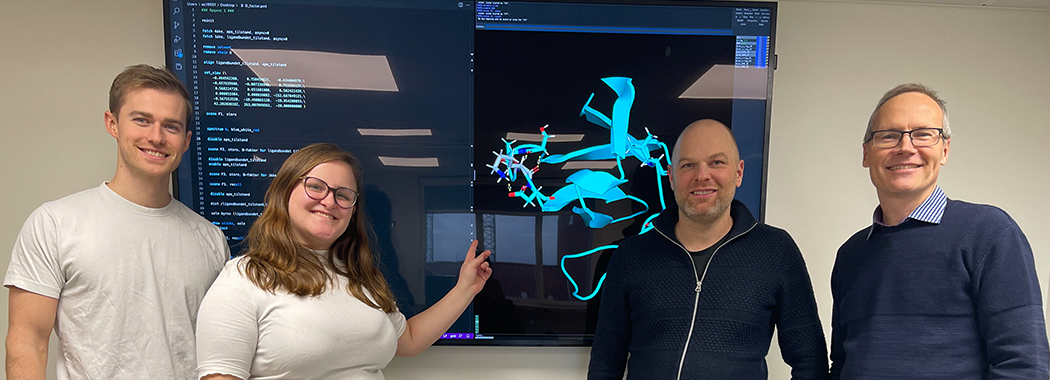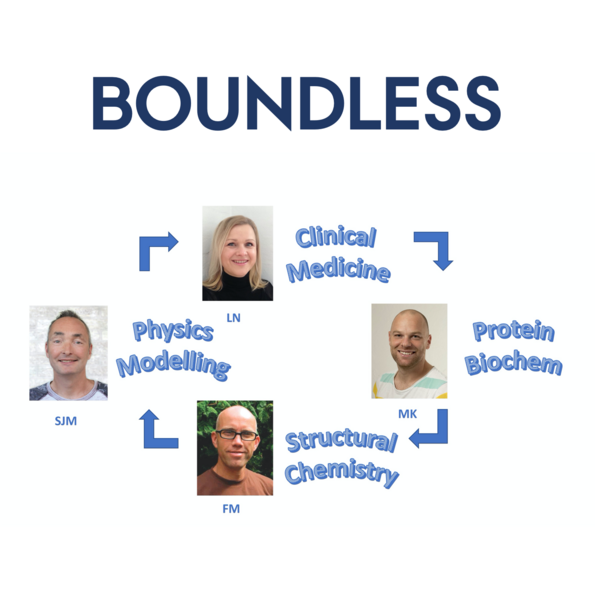
A group of teachers at the Department of Molecular Biology and Genetics at Aarhus University has joined forces with former students to develop the teaching of structural biology. The result is a whole new way of teaching computer skills, and it has been well received by new students.
Researchers from Aarhus University challenge one of the cornerstones of biochemistry, the Michaelis-Menten equation. They show that many enzymes in signalling pathways are independent of substrate concentration, because the substrate is physically connected to the enzyme. With these results, it may one day be possible to develop drugs that not only target the enzyme, but also affect how it is connected to its substrate.
Our cells are capable of moving energy and material around to the places where they are required, and ensuring that the body works properly. But how do the cells do this in real time from the perspective of the individual molecule? A Danish research team has succeeded in revealing basic insights into this previously unknown world by carrying out the first experiments that show the workings of an individual molecule in the molecular ‘motor’ – known as the calcium pump. The discovery has just been published in the leading journal Nature.
Associate Professor Magnus Kjærgaard, Department of Molecular Biology and Genetics, Aarhus University, has been awarded an Ascending Investigator grant of DKK 10 million (Euro 1,34 million) from the Novo Nordisk Foundation over the next five years to test whether a new type of cellular structures - membraneless organelles - can be used in biotechnology. The goal is to be able to make environmentally friendly natural compound for use in medicine.

Magnus Kjærgaard has received DKK 5 million from the Carlsberg Foundation’s Semper Ardens Programme to study the regulation of membraneless organelles. Understanding how cells control such organelles is key to understanding the molecular processes of life, but also for understanding a whole new type of disease mechanisms where this assembly is disturbed.

Associate Professor Magnus Kjærgaard participates in a new consortium, BOUNDLESS, headed by Associate Professor Frans Mulder and funded by the Interdisciplinary Synergy Programme of the Novo Nordisk Foundation. With the grant of DKK 14.4 M, the consortium will study how membrane-less organelles control key biological processes.
Magnus Kjærgaard was awarded a grant of DKK 5 million by VILLUM FONDEN's Young Investigator Programme 2016, supporting young, talented researchers. The grant will allow Magnus to investigate how the physical association of biomolecules affects signalling pathways.
Together with Anders Nykjær (Centre Director) and Marco Capogna from the Department of Biomedicine, Poul Nissen, Sadegh Nabavi, Hanne Poulsen and Magnus Kjærgaard from MBG/DANDRITE/iNANO receive DKK 62 million to start the Center for Proteins in Memory (PROMEMO).